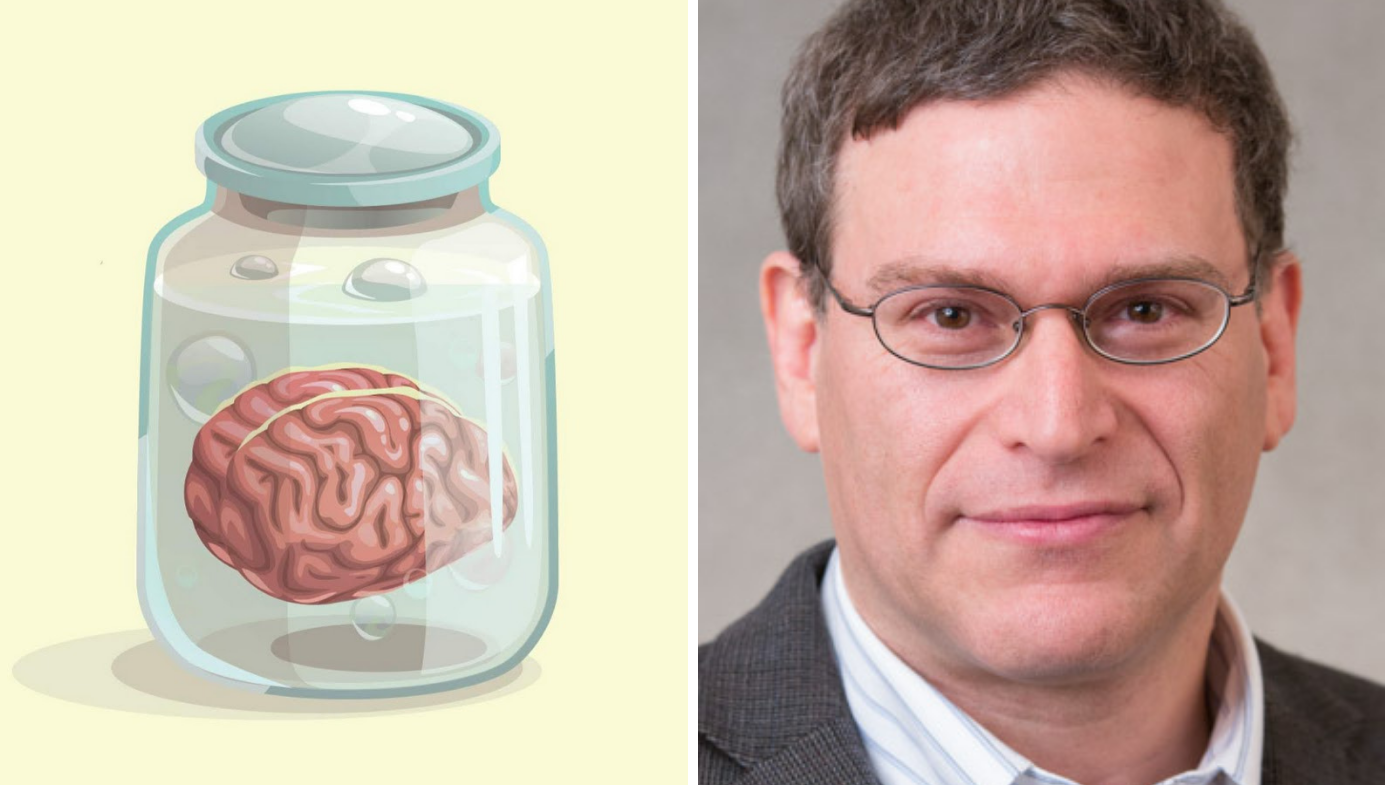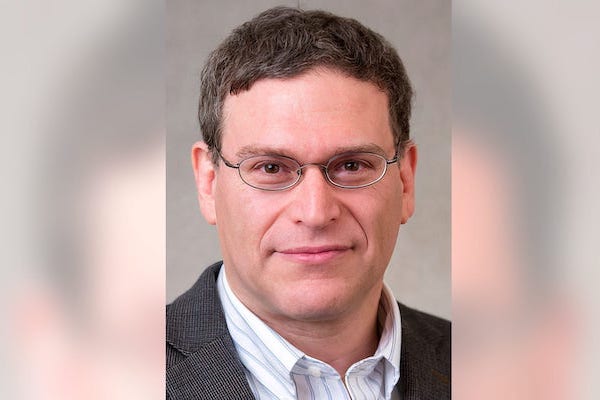Education
Stephen Kershnar and the Importance of Unaskable Questions

Unpopular, unorthodox and extreme opinions no less than any others need their spokesmen, in order that our chances of discovering truths and making wise decisions be increased.
~Joel Feinberg
In January of this year, SUNY Fredonia ethicist Stephen Kershnar appeared on an episode of our philosophy podcast, Brain in a Vat. As usual, we invited our guest to begin by setting out a philosophical thought experiment. We then gave him time to defend his own position, before spending the rest of the episode testing his claims and arguments. This is how every episode of the podcast is structured.
But on this occasion, a thread of clips from the episode was posted on Twitter by a popular conservative account, along with scandalized commentary and a demand for Kershnar to be summarily fired from his teaching position. Within 48 hours, these clips had been viewed over a million times. The story was picked up by multiple media outlets, including the Federalist, Inside Higher Education, Jesse Watters Primetime, the New York Post, and Newsweek. Most of these writers and outlets shared the outrage and disgust of social-media commentators. Who knew that philosophy—the domain of dusty libraries and fading leather armchairs—could still be this controversial?
In response to the public outcry, YouTube swiftly removed the episode (then restored it, then removed it again) as abusive comments streamed into our YouTube feed and Kershnar’s email inbox became a volcano of invective, replete with death threats, amazing levels of antisemitism, and flagrant misrepresentations of his views. Fredonia hastily declared Kershnar’s opinions to be “reprehensible,” and he has since been suspended from teaching, removed from campus, and forbidden from contact with students or faculty. A change.org petition was opened and rapidly collected over 50,000 signatures calling for his dismissal. Members of the State Legislature of New York Albany also called for Kershnar to be fired.
So, what was the cause of the controversy? During the podcast, Kershnar had asked us to consider that not every case of adult-child sex ought to be morally impermissible. Contrary to almost every vitriolic criticism, he did not argue that all cases of adult-child sex ought to be permissible—just that there may be some cases that are. He did not deny or trivialize the suffering of victims of child rape (which he maintains is unequivocally wrong), and he certainly did not encourage or endorse paedophilia, nor any other action that may harm children. Since he began publishing his thoughts on this topic in 2001, he has argued that the case for the criminalization of adult-child sex is plausible (although he discusses the problems with this policy on our podcast). He has repeatedly and unambiguously stated that he is not a paedophile, and that he personally finds adult-child sex disgusting.
Nevertheless, Kershnar believes that one of the tasks of an ethicist is to scrutinize the moral justifications for societal taboos. It is insufficient to merely assert that a kind of behavior is wrong—we ought to try to understand why it is wrong. This question is particularly important with respect to the most incendiary topics since the social enforcement of taboos means that such questions are seldom asked. He asks them precisely to challenge assumptions that are deeply held but rarely challenged. Why are we so certain that (for instance) adult-child sex is always wrong? Why exactly is it wrong? Is it wrong under any circumstances? And what harms are committed?
During our podcast discussion and in his written work, Kershnar explores consent-based arguments and utilitarian accounts, and finds neither to be convincing justifications for a blanket moral prohibition of adult-child sex.
Although Kershnar has suffered unwarranted—and possibly irreparable—damage to his career prospects and reputation, a number of prominent philosophers and academics came to his defense. Highly respected nonpartisan groups such as FIRE (the Foundation for Individual Rights in Education) and the Academic Freedom Alliance, and influential philosophy bloggers, including Brian Leiter at Leiter Reports and Justin Weinberg at the Daily Nous, vehemently defended Kershnar’s First-Amendment and academic-freedom-related rights.
On February 4th, FIRE published the text of a letter it had sent to SUNY Fredonia president, Stephen Kolison, protesting the university’s treatment of its own professor. It was signed by many of the world’s leading writers and academics—including Jeff McMahan, Paul Bloom, Peter Singer, Nadine Strossen, Eugene Volokh, and Keith Whittington. The arguments of these supporters, along with those of his attorney, Barry Covert, offer a stalwart defense of Kershnar and have provided vital resistance to his cancellation.

As the hosts of Brain in a Vat, we regularly invite guests to defend positions with which we disagree, just as we disagree with Kershnar’s. The entire point of this kind of philosophical discussion is to explore disagreement and the robustness of reasoning we take for granted. But an increasingly disturbing trend in universities generally, and philosophy departments specifically, demands the vilification of offensive views and dissenting voices to ensure that no such discussion or debate can be allowed to take place at all.
Academic freedom is obviously valuable when it is exercised to protect discussion of questions about which disagreement is generally tolerated. But it is particularly important to protect discussion of topics that disturb us, and which ask us to question our most fundamental moral axioms. Cary Nelson, president of the American Association of University Professors, argues that academic freedom requires faculty and students to be able to engage in intellectual debate, on or off campus, without fear of censorship or retaliation. They must have the right to challenge views, but not to penalize anyone for holding them. Faculty must have substantial latitude in deciding how to teach their own courses, and to research topics of their choice. The political, religious, or philosophical beliefs of politicians, administrators, and members of the public must not be imposed on students or scholars.
There are many reasons why academic freedom is so valuable, but the following four are among the most important:
1. Truth
The free dissemination and discussion of beliefs and opinions allows intellectual, cultural, and scientific progress to emerge from the search for truth and understanding. Since we are all fallible, we cannot be certain that a particular opinion is false unless it is tested. Suppressing opinions that we believe to be false or potentially harmful risks thwarting the pursuit of truth when consensus emerges around a falsehood and dissent is punished. By stifling beliefs that are different from our own, we forfeit the opportunity to challenge, reconsider, and perhaps reaffirm our own views.
2. Democracy
Freedom of expression is the cornerstone of a functioning democratic state. It gives people the opportunity to be exposed to contrary viewpoints so that they are able to make informed decisions about their political and private lives. Academics play a particularly important role in this process because their research can inform public policy and because they are teaching the politicians, journalists, researchers, and entrepreneurs of tomorrow about the whole gamut of human affairs—political, social, and ethical. Universities that allow for a broad selection of opinions create an environment that strengthens students’ analytical skills and trains them to question the views presented to them for consideration.
3. Autonomy
In Freedom's Law: The Moral Reading of the America Constitution, the eminent legal philosopher Ronald Dworkin wrote:
Morally responsible people insist on making up their own minds about what is good or bad in life or in politics, or what is true or false in matters of justice and faith. Government insults its citizens, and denies their moral responsibility, when it decrees that they cannot be trusted to hear opinions that might persuade them to dangerous or offensive convictions. We retain our dignity, as individuals, only by insisting that no one—no official and no majority—has the right to withhold an opinion from us on the ground that we are not fit to hear and consider it.
When students are exposed to a range of conflicting opinions on a subject, they are given the opportunity to exercise their rational faculties, weigh the arguments on both sides, and come to form their own view on the matter.
4. Transparency
In her seminal paper on the dangers of suppressing racist speech, “No Platform for Racists: What Should the View of Those on the Left Be?” Denise Meyerson wrote that:
To drive an evil view underground can actually increase its strength; whereas to debate it out in the open is more likely to bring home its abhorrent nature.
It is only too easy for censorship laws to be put to different uses from those originally intended and if we are happy for them to be deployed in one way, we make it much easier for them to be deployed in other, more frightening, ways later.
Tolerance of offensive views can provide a measure of certainty as to how widespread such views are in society. The threat of sanction would be very unlikely to compel individuals to change their mind, but rather to hide their views more efficiently. The problem does not go away, it merely becomes more difficult to assess.
According to these four justifications for freedom of speech, even the expression of hurtful, hateful, offensive, and immoral statements must be protected. This protects the freedom and autonomy of the person who holds these views, but it also offers the broader benefit of allowing others the opportunity to hear them, to test their merits, and to make up their own minds. Freedom of expression not only encompasses the right to impart information, but the right to receive and consider it, too.
Defending freedom of expression necessarily requires the toleration of views that many reasonable people find distasteful, but it does not require a defense of the views themselves or their value—the free expression of opinion is important, precisely so that the value of the opinions expressed can be debated and determined. Freedom of speech commits us to the proposition that, given the opportunity to consider such views, we will identify their flaws or benefits. Human frailty being what it is, moral good, justice, and progress will not always prevail in the short run. But they have a much better chance of doing so in the end than under conditions of censorship and stigmatization.
We must choose between a culture of fear and a culture of tolerance. If academics are vilified at every turn for offending sensibilities, then uncomfortable questions will never be asked. It is incumbent upon us to provide thinkers like Stephen Kershnar with the space to test their ideas, even—and especially—when we find those ideas offensive.






